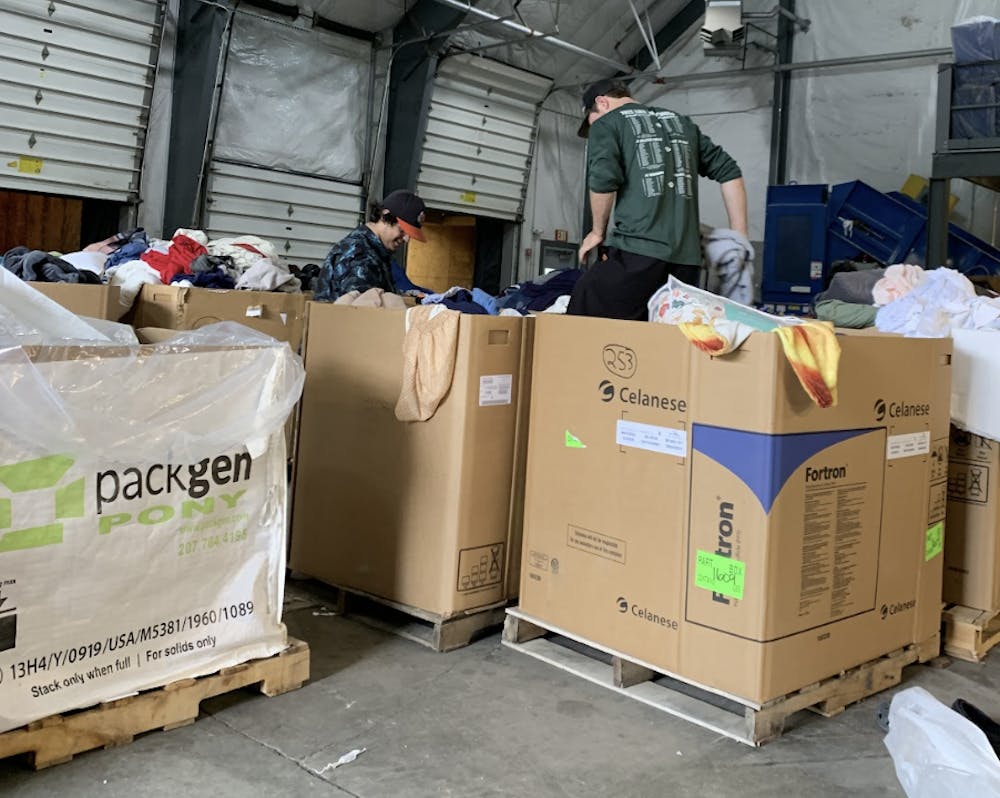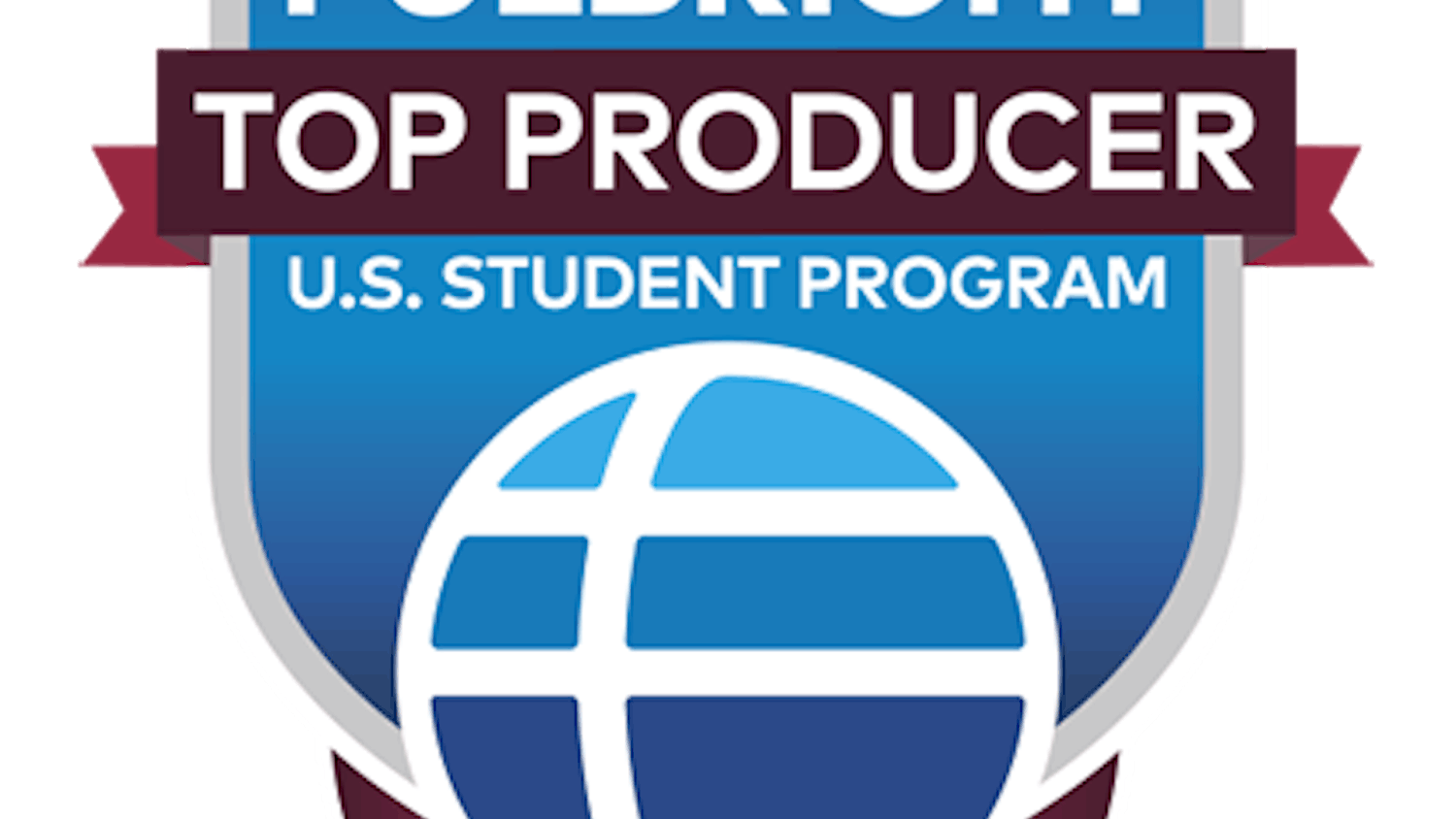As the academic year comes to a close, the student body begins to pack up and head home for the summer. But each year as people take their belongings with them, many things inevitably get left behind.
The Middlebury Sustainability Solutions Lab tries to minimize the negative effects of move-out week, and student interns are working on waste management projects throughout campus to neutralize the college’s environmental impact. The lab’s main focus during move-out week is to communicate with students and the administration.
“The [Sustainability Solutions Lab] has a move-out poster, locations and special collection sites. “[They] try to really be in communication with the recycling center, because I think that relationship is very important and has been helpful in the past,” said Tessa Husted ’26.5, who works as an intern at the lab, where she focuses specifically on waste management and consumption at the recycling center
The Sustainability Solutions Lab was founded in 2017 and over 150 student interns have participated in more than 40 environmental projects around campus, according to its website. Middlebury’s website describes their mission as “provid[ing] students with paid experiential learning opportunities for sustainability in practice and cultivation of critical thinking and professional skills… [interns] explore, reimagine, and implement action-based solutions, utilizing a lens of environmental justice to share Middlebury’s evolving sustainability journey.”
According to Husted, a main cause of poor recycling habits on campus is the lack of outdoor recycling bins.
“The most convenient bin around campus is a trash bin, we don’t have recycling bins spread across, you can only find them inside the buildings,” she explained.
Kim Bickham, a supervisor for waste management and custodial services, said that another problem is the non-sorting policy at the recycling center. During Covid-19, Facilities Services separated all of the trash and recycling. Since January, Bickham described, if recycling is mixed with trash, all of it goes into the trash.
Because sorting through recycling is not a normal practice, staff has had to figure out how to collect non-contaminated recycling.
The center cannot sort through recycling, so the trash going into landfills from the college has increased over the years. When they used to sort during the Covid-19 pandemic, the average diversion rate (the trash/recyclables that do not go to the landfill) was around 65%, but in the past few years it has dropped to 50%.
Both Husted and Bickham described unreturned dining hall dishes as one of the most unsustainable practices year-round.
“My folks clean Proctor in the morning, just the bathrooms. In the bathroom in the new study spaces across from the bookstore, there are dishes there every single day,” Bickham said.
Many of the dishes that are not returned to dining halls by the end of the year go to the recycling center. There were 3,500 pounds in dishes left for the recycling center staff to handle for the 2022-23 school year, according to data collected by the recycling center annually. Dining Services has spent $18,000 on dishes since the beginning of the fall semester to the end of March, and they expect to spend at least $25,000 by the end of spring.
Another contribution to waste reduction is the reuse trailer project, which has electronics and clothes, among other things, and has big sales in June after students move out, as well as during orientation week. Husted hopes to make the free-use trailers more accessible to students throughout the year at the recycling center so students always have a place to drop off unwanted items instead of throwing them in the trash.
According to the recycling center staff, thousands of pounds of waste unnecessarily go to landfills. For the 2022–23 school year, scrap appliances totaled just under 16,000 lbs, clothing was about 20,400 lbs and electronics were 3,800 lbs. Many of these items can be reused and dropped off at the recycling center, the staff explained.
Much of the bedding at the recycling center goes to international bundles or services like the Charter House coalition, so students can bring more than just appliances to the recycling center when they move out of their dorm rooms.
Husted described the most difficult part as the fact that students do not plan ahead for their move out. “When it comes down to it, everyone’s in a rush to get out so they don’t sort things and stuff gets left all over the place,” she said.
Bickham emphasized the importance of separating trash and recycling both year-round and during move out, specifically.
“If folks can think about reducing, reusing, and recycling and separate trash from their recyclables or reusables, things like books, clothing, textiles, shampoos, soaps, unwrapped food, those kinds of things, the more we can keep out of the landfill,” Bickham said.




